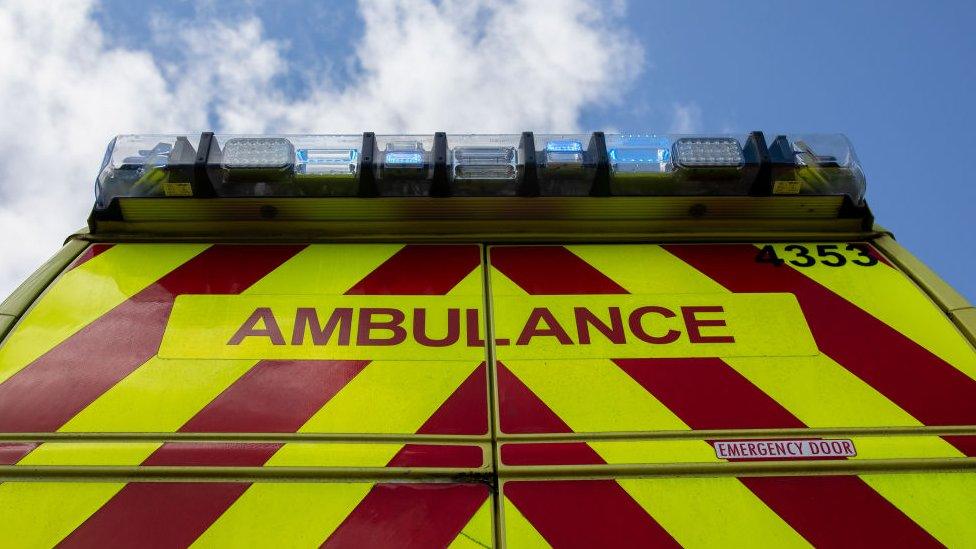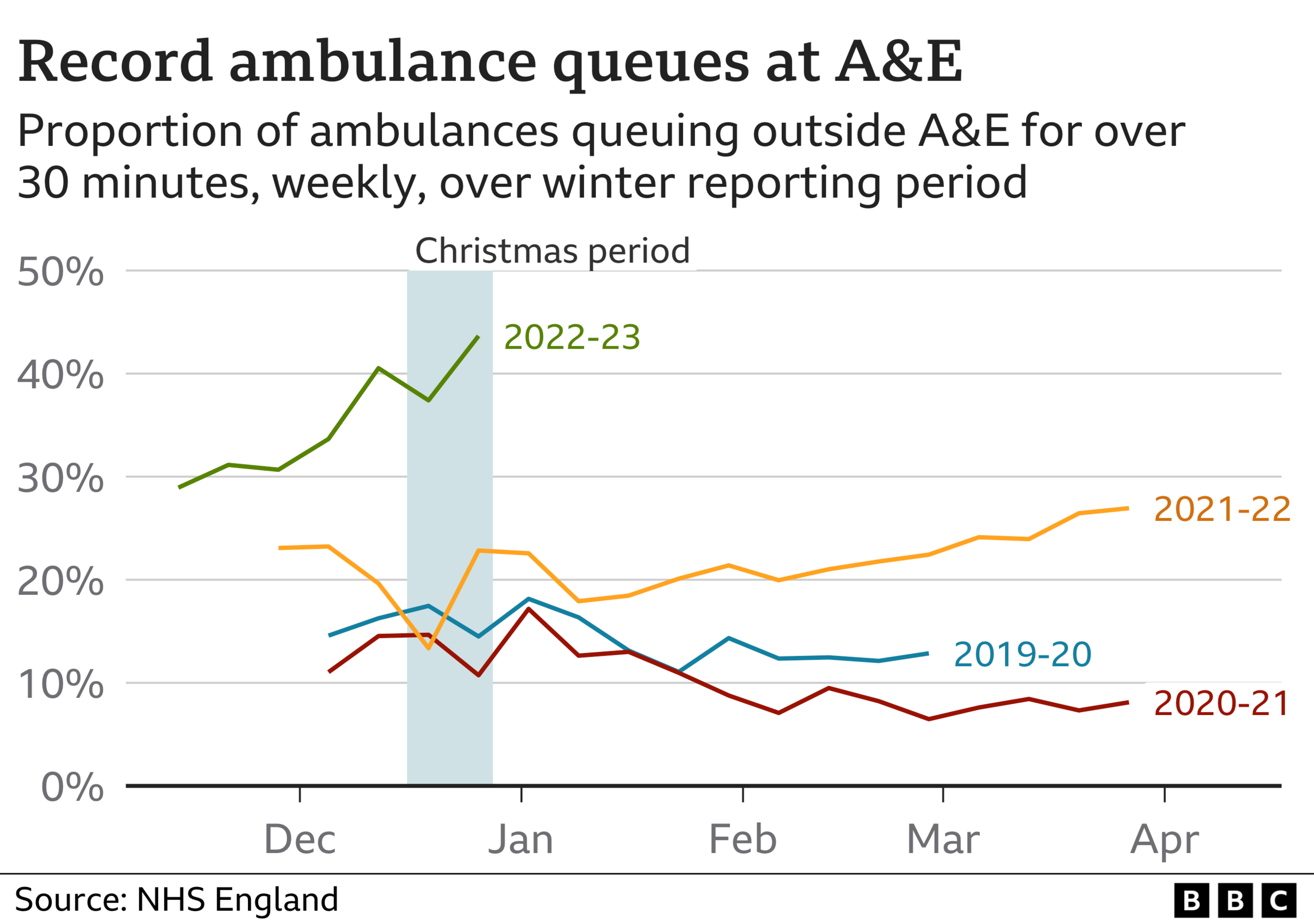I worry we're killing people - ambulance dispatcher
- Published

Ambulance staff will take part in their second day of strike action this winter, on Wednesday. Alongside paramedics, call-centre staff will walk out across England and Wales in the dispute over pay. These workers play a vital role, taking calls from the public and assigning ambulance crews.
An ambulance dispatcher at the North West Ambulance Service, who wishes to stay anonymous, has described working amid the extreme pressures of this winter.

"The job is crushingly depressing, stressful and embarrassing," the dispatcher says. "I feel so destroyed. The feeling of saving lives has been taken over by how many can we not kill.
"I never thought I'd leave the NHS - but I'd take a job at Aldi. I'd take a job cleaning.
"The thought of going in and having to manage those calls just fills me with absolute dread. I have seen people leave the ambulance service - they have had enough. We are physically and mentally exhausted."
Most frustrating, the dispatcher says, is the number of crews stuck outside hospital waiting to hand patients over to accident-and-emergency staff.
In the last week of 2022, more than 40% of crews in England had waits of more than 30 minutes - it should take 15.
"I know going in that I will have to dispatch ambulance crews to hospitals to take over from other ambulance crews who have been outside for 12 hours," the dispatcher says.
"It just means we don't have those crews available to respond to calls and it exacerbates our shortness of resources by 10-fold, 100-fold.
"So instead of going out on jobs, the first thing they do is go to the hospitals and free the ambulance staff up to go home. Those staff could have been there the whole shift virtually. This happens every shift at virtually every hospital.

"If the crews are with patients in ambulances, then we send one crew to one ambulance to swap. Effectively, if there's seven ambulances outside, then seven new pairs of crews complete with ambulances are swapping over. They then send the 12-hour old crew back to base to go home.
"It is not how things should be - and because we have so many ambulances stuck at hospital, we are putting patients at risk."
The problems are due to a lack of beds, the dispatcher says.
"Social care is not in place," they say. "I'll give you an example - a lady had a fall and was medically fit for discharge on 21 December but because her care package wasn't in place, she was advised that it was safer if she stayed in hospital.
"That's a bed taken up for the entirety of the Christmas and new-year period by someone who is well enough to leave hospital."
The dispatcher is particularly concerned about category-two calls, which include people who have had strokes and heart attacks. Meant to be reached in 18 minutes on average, they are taking nearly three times as long and in some cases, they say, hours.

"We are now telling them how long they have to wait, when there are long waits," the dispatcher says. "We are asking them if there is anyone who can convey them to [hospital], because time is of the essence. Sometimes, they don't have that - and three hours later, they can be dead.
"In one case, there was a man who had chest pains who drove himself to hospital and had a cardiac arrest in the hospital car park and crashed his car.
"This is not the NHS I know and love and is why we have to take action."
In response, the North West Ambulance Service said the service was under "extreme pressure" and some patients were waiting longer "than we would like".
But it added: "Our staff work hard every day to ensure everyone who needs an ambulance gets one - and we continue to perform better than other parts of the country."
The service said it was working with other parts of the NHS to tackle handover delays and recruiting call handlers and clinicians into the call centres, as well as front-line ambulance crews.
Meanwhile, a spokesman for the Department of Health and Social Care said extra money it was investing this winter, totalling £750m, would help speed up delayed discharges, which in turn would ease the handover problems being seen.
"We recognise the pressures the NHS is facing following the impact of the pandemic and are working tireless to ensure people get the care they need," he added.

Do you work for the ambulance service? Are you in favour or against strike action? Share your experiences by emailing haveyoursay@bbc.co.uk, external.
Please include a contact number if you are willing to speak to a BBC journalist. You can also get in touch in the following ways:
WhatsApp: +44 7756 165803
Tweet: @BBC_HaveYourSay, external
Please read our terms & conditions and privacy policy
If you are reading this page and can't see the form you will need to visit the mobile version of the BBC website to submit your question or comment or you can email us at HaveYourSay@bbc.co.uk, external. Please include your name, age and location with any submission.
Related topics
- Published2 January 2023

